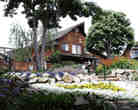GETTING OUT OF THE SLUSH PILE
 Writing is a hair-raising profession that few ever make a living at. The percentages are minuscule (some sources have it at less than 1%.) But there are ways to increase your odds of at least getting your manuscript out of the publishers’ slush piles and into the hands of senior editors, and I’m going to throw out a few pointers/suggestions that might help you get there.
Writing is a hair-raising profession that few ever make a living at. The percentages are minuscule (some sources have it at less than 1%.) But there are ways to increase your odds of at least getting your manuscript out of the publishers’ slush piles and into the hands of senior editors, and I’m going to throw out a few pointers/suggestions that might help you get there.Ready? Here we go ...
First, finish your story. If you want to approach an agent with a novel, you’d best have it all laid out (there are exceptions but this is a good rule to follow.) The last thing you want to do is to rush through the last twenty chapters of a novel if you get an agent’s acceptance letter. Having to hurry through the ending will undoubtedly cause your grand finale to suffer.
Learn proper manuscript format. If you’re not sure what this means, please click here.
Brush up on novel proposals and query letters. Find books on the subjects and learn as much as you can.
 You must have a firm grasp of proper English (or whatever language you write in). If you have poor grammar, spelling, syntax, punctuation, etc., an agent won’t respond to you no matter how "good" your story might be. You suck at English? Take a class. I’m sure your junior college offers them. I’ve read books by self-published "authors" (and even a few professionally published ones) that suffer from horrid editing and a lack of understanding of basic English.
You must have a firm grasp of proper English (or whatever language you write in). If you have poor grammar, spelling, syntax, punctuation, etc., an agent won’t respond to you no matter how "good" your story might be. You suck at English? Take a class. I’m sure your junior college offers them. I’ve read books by self-published "authors" (and even a few professionally published ones) that suffer from horrid editing and a lack of understanding of basic English.Learn how to write prose like your favorite author. You like Stephen King? Ray Bradbury? Charles Dickens? Try emulating their style.
Understand basic terminology when it comes to writing. Can you identify a pronoun? A verb? A prepositional phrase? A dangling participle? If you can’t, again, it’s time to head to the junior college and sign up.
Thus far I’ve been pretty broad but now let’s get a bit more specific.
Prose. Oh, that ugly word! What does it mean? If you look up the term in the dictionary it’ll define it as "ordinary speech or writing." But great prose is anything but ordinary. Would you call EAST OF EDEN by John Steinbeck ordinary? Or King’s THE SHINING? Or Tolkien’s THE HOBBIT? So how come these guys write so well? Is it in their genes? Not necessarily.
To help you with prose, let’s look at some common mistakes made by first time authors.
[WARNING: these rules are not written in stone but following some basic ones will help you break into the publishing world much easier.]
Tense issues. If you’re telling a story in past tense, make sure you stay there.
Examples: [Wrong]
Note: ‘say’ should’ve been ‘said’.
That was a pretty simple example but you get the general idea.
Another rule is "show, don’t tell." This is something I preach to every writer. There are
 circumstances where telling is appropriate, but for the most part you should be showing your reader things, not telling them.
circumstances where telling is appropriate, but for the most part you should be showing your reader things, not telling them.Examples: [Wrong]
Showing takes more words and time, but it also invests your reader in the characters and setting. You want to guide the reader into your story, not drag them through it on a leash. Never, ever, EVER say things like, ‘He was afraid to admit that he was ashamed of his past.’ What does this show us? Absolutely nothing.
Some authors, after being chastised for telling and not showing, make the mistake of doing both. Don’t fall into that trap.
Examples: [Wrong]
Note: you don’t need to tell the reader this person is angry (in dialogue or otherwise). They know because you’ve shown it via her actions.
Okay, I’m done preaching ...for now. Tune in soon for more blathering from Byron The Fanatic!





